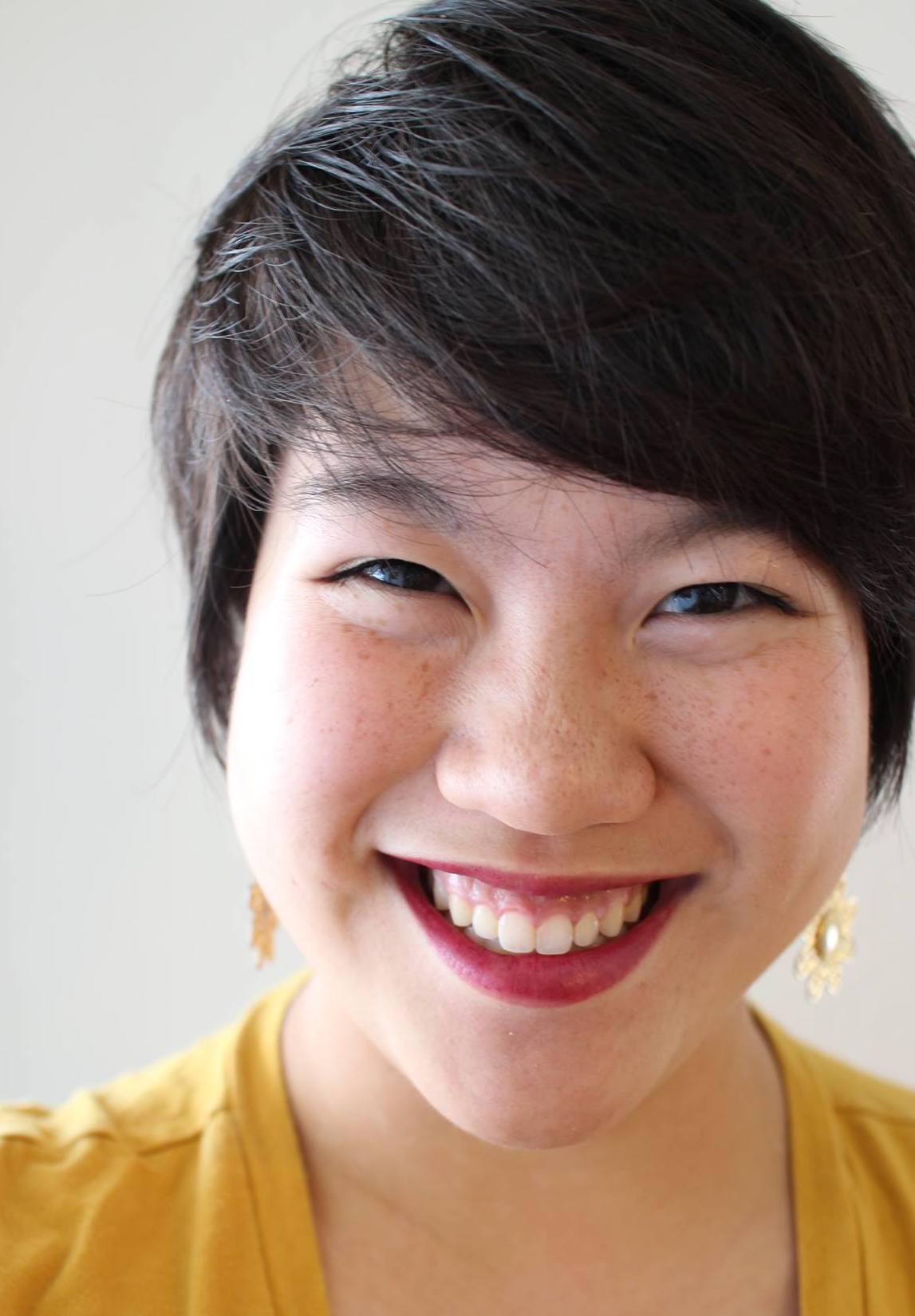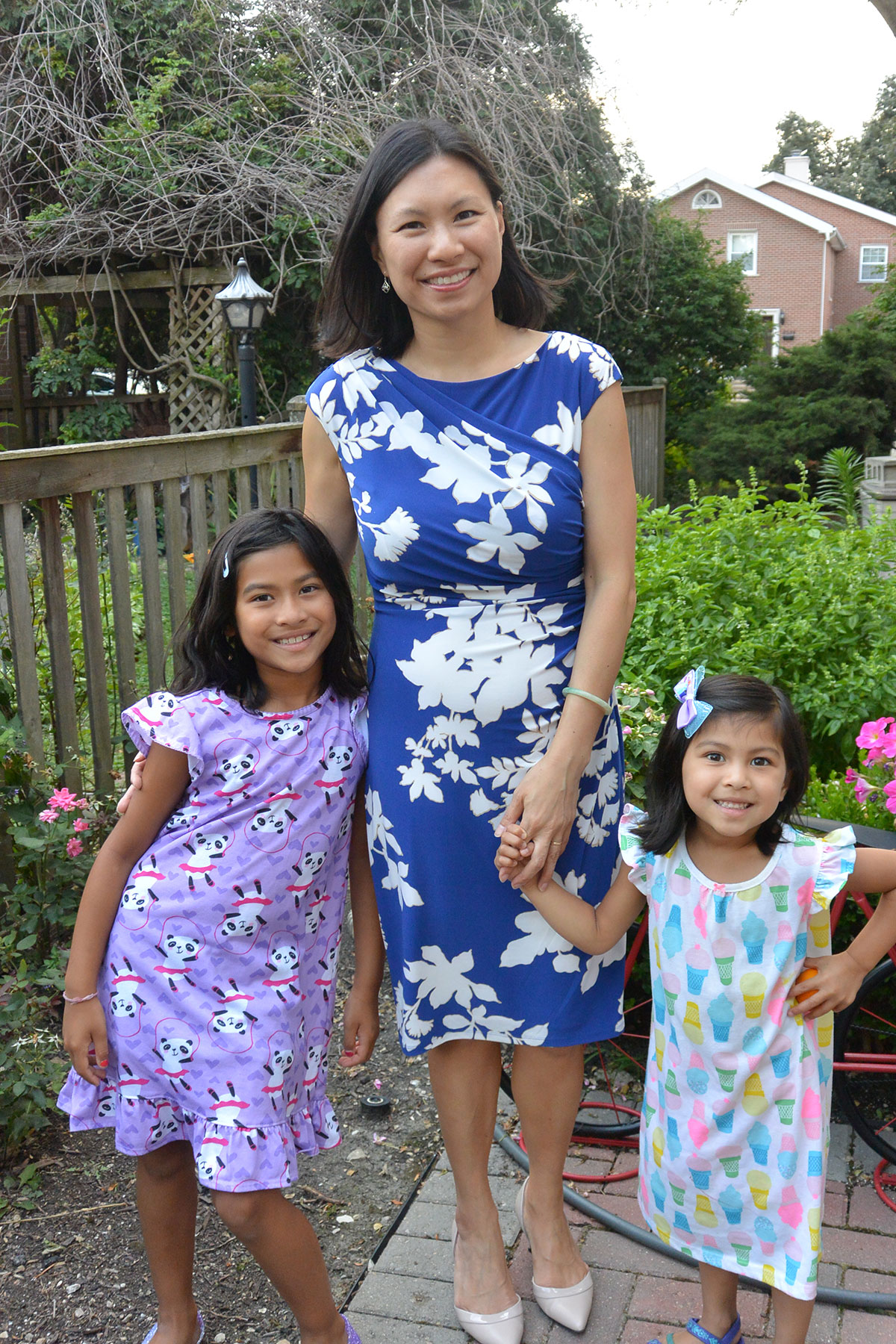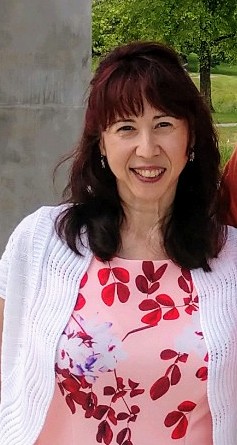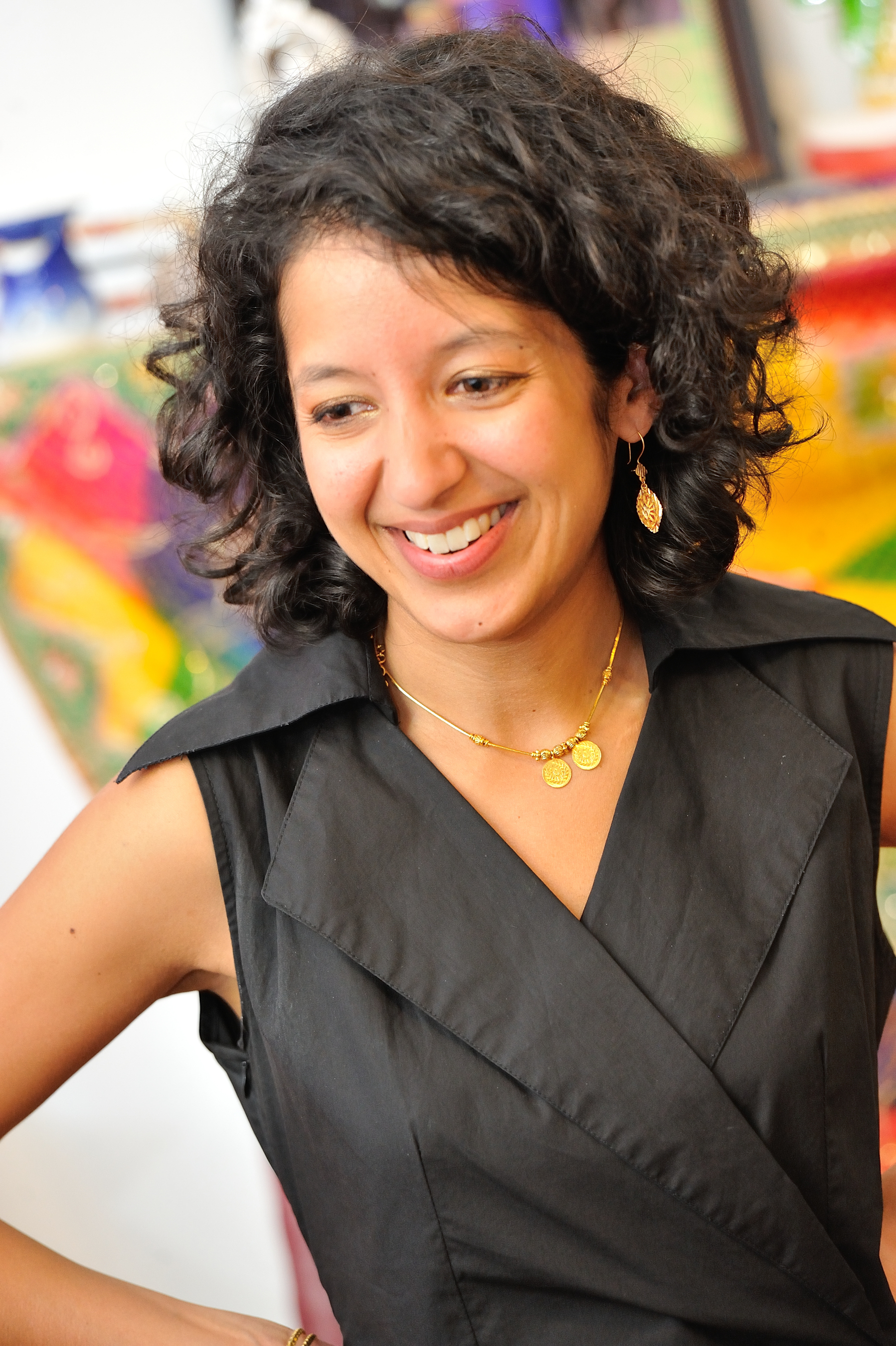Episode 006: So Where Are We Really From?
Subscribe today on Apple Podcasts, Google Play, Pocket Casts, Radio Public, Spotify, Stitcher or TuneIn.
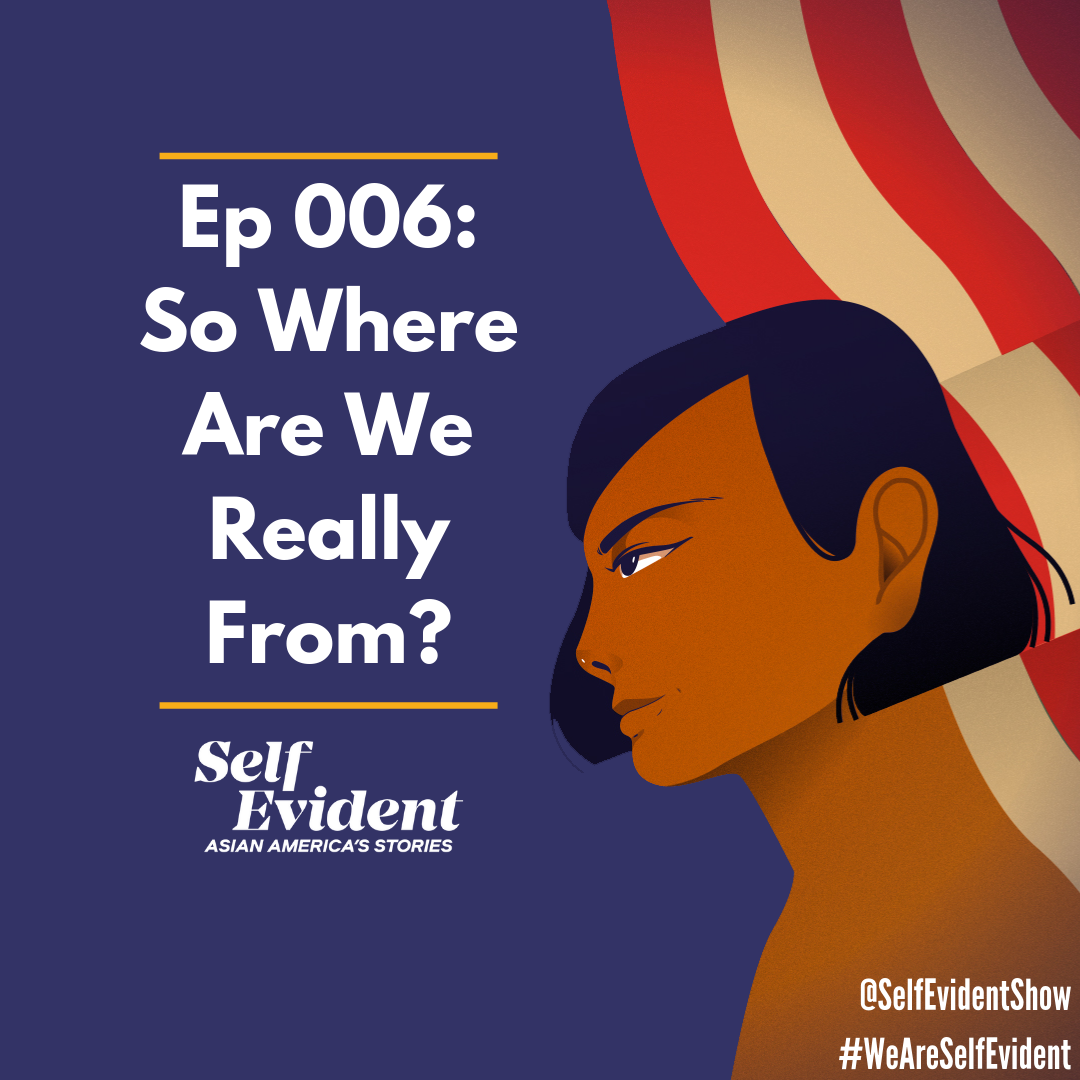
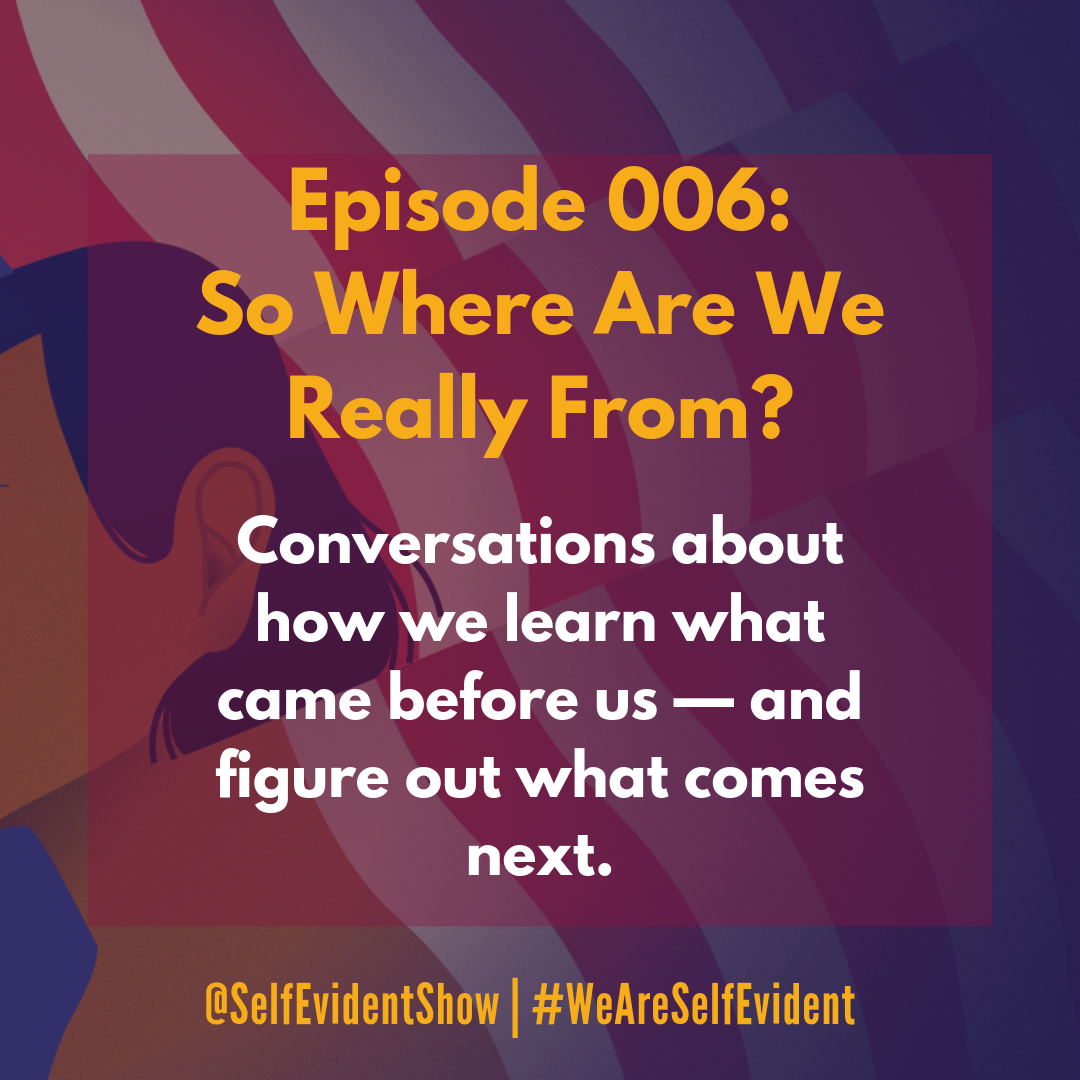
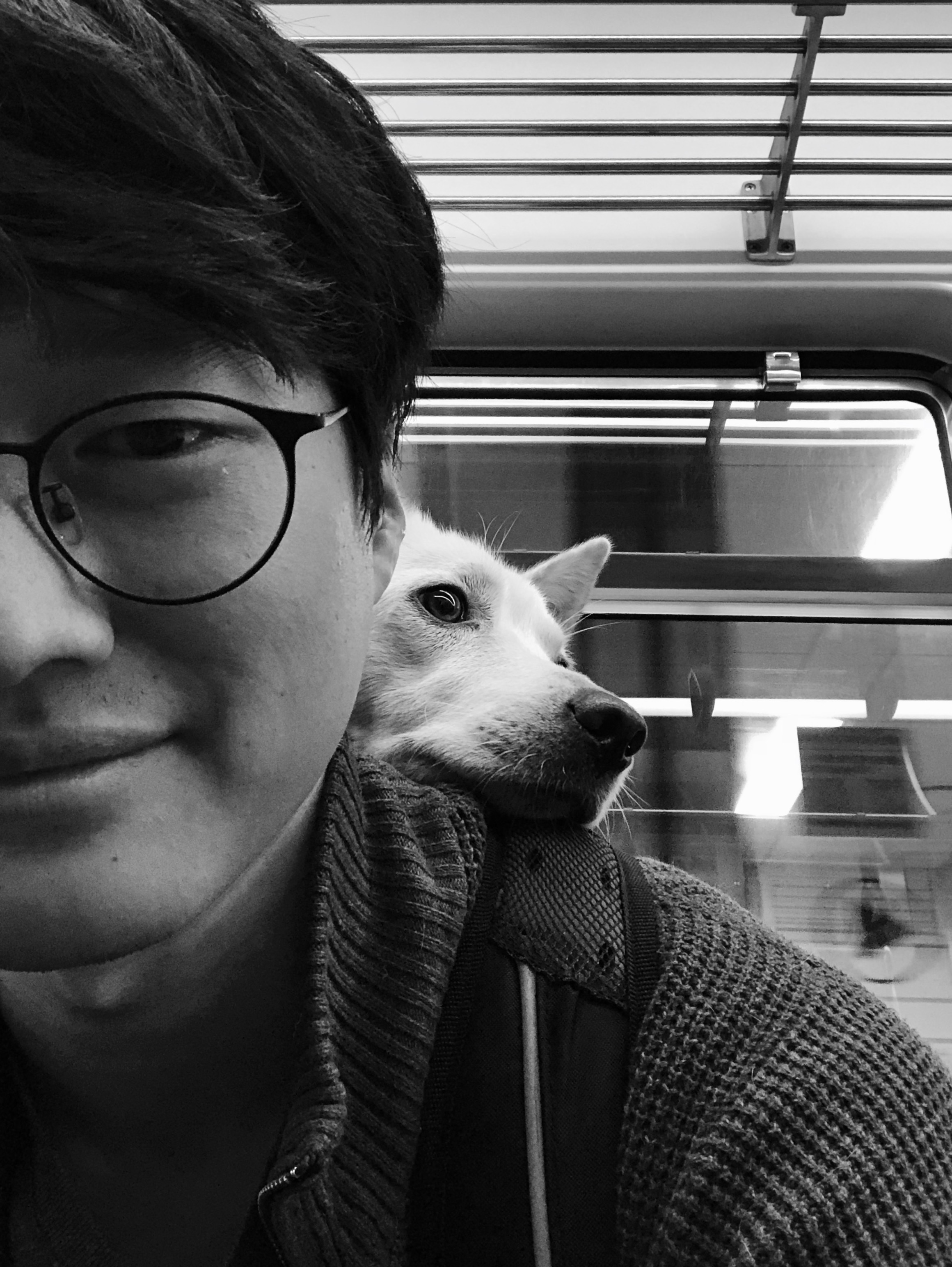
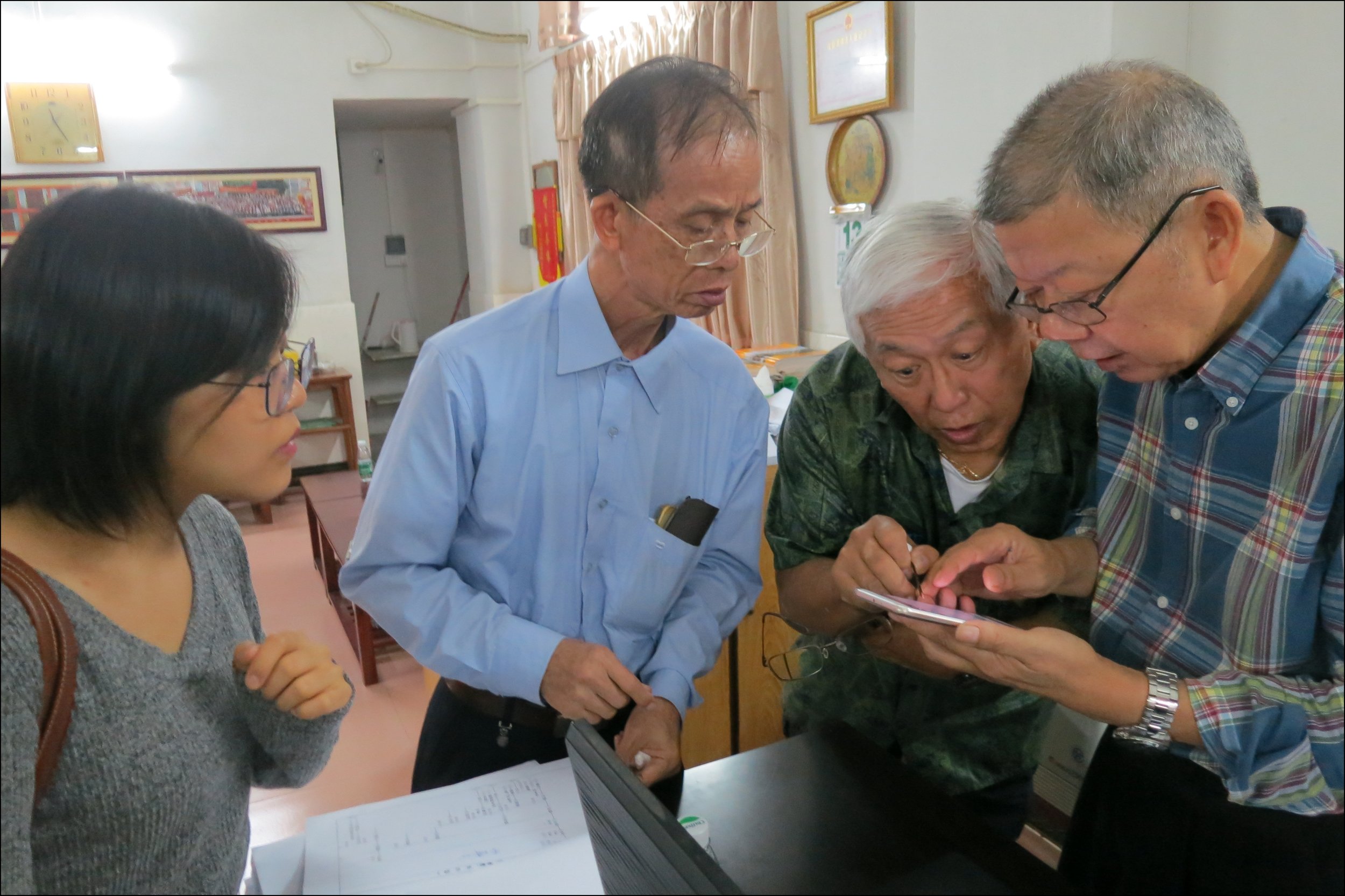
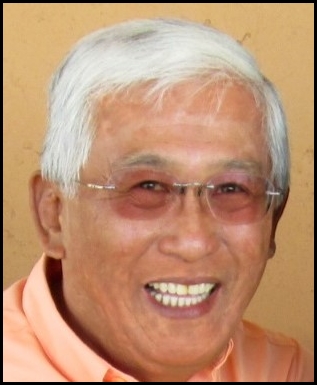
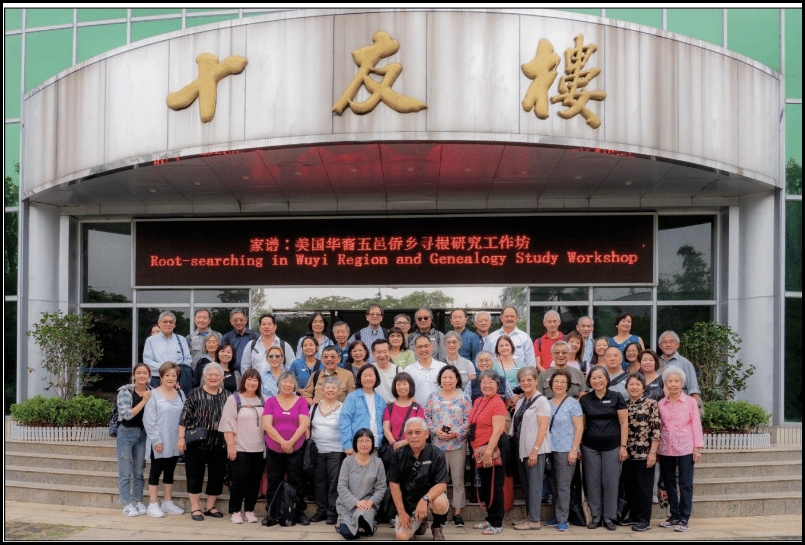
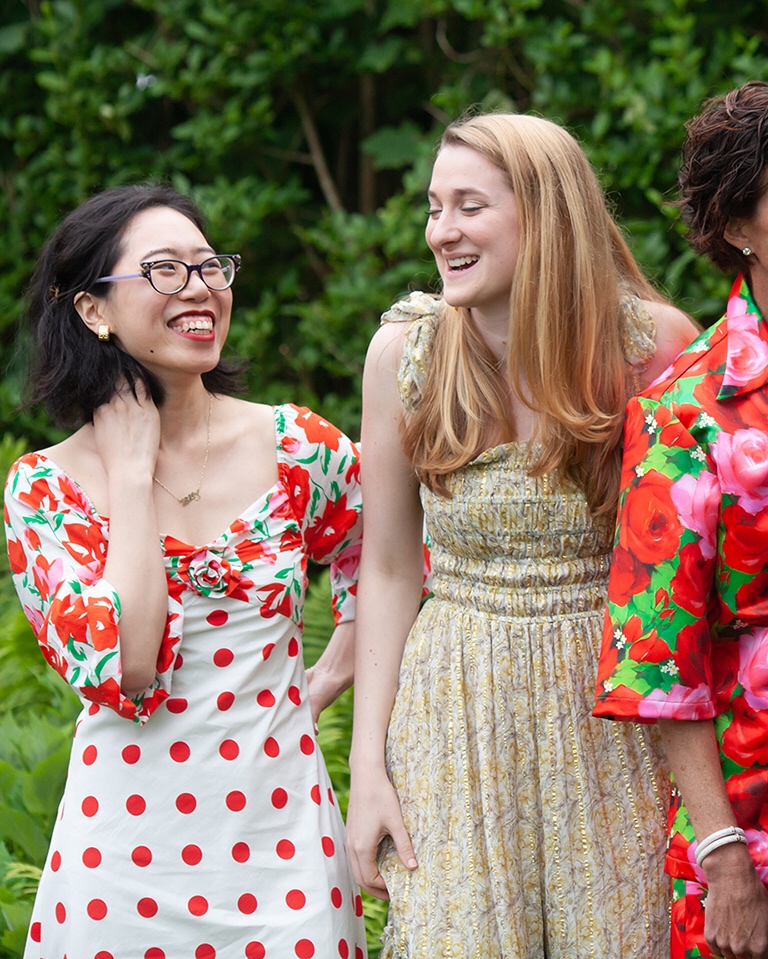

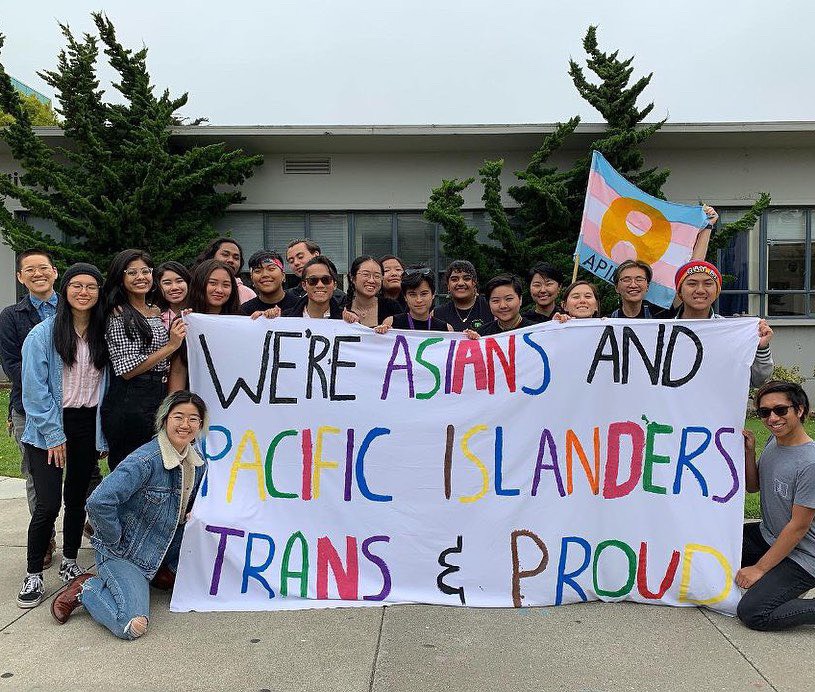
About the episode
We asked our listener community, “How did you learn where you come from?”
What came back was a wide range of personal stories about how tricky it can be to access our heritage. From kids going to culture camp, to adoptees making journeys to their birth countries, to Asian Americans of all ages realizing that they’re inevitably going to lose a piece of themselves — we explore how we fit in with what came before us and figure out what comes next.
We need your help!
Please take this 2-minute survey, so we can have better conversations with partners and sponsors and keep this show growing. It’s fast, easy, and anonymous.
Resources and Recommended Reading:
Misha recommends that Self Evident listeners check out episode 2 of Tell Them, I Am, “Deana.”
Read some of Ansley’s poetry, accompanied by her own visual artwork, on Culturestrike.
If you’d like to participate in Henry’s Chinese geneaology workshop, e-mail Henry [dot] Tom [at] Cox [dot] net.
Mark, one of the voices on today’s episode, has told the full story of his trip to find his birth record in Korea on this episode of the Escape from Plan A podcast.
Check out Leading Youth Forward, Chicago Desi Youth Rising, NQAPIA, and APIENC to see examples of Asian American spaces for cultural and political education.
To learn more about “Love Boat” and how it’s impacted Asian Americans, check out Valerie Soe’s documentary, Love Boat: Taiwan, which is touring film festivals across the country.
Shout Outs:
Shout out to Yin Kong and Yin Mei of Think!Chinatown for inviting us to the workshop where we met Henry Tom.
Thanks to everyone from our listener community who shared their experiences with us in the making of this episode: Alice Chou, Davey Kim, Gabor Fu, Jenni Wong, Kathleen Burkinshaw, Lily Susman, Lori Wanko, Mark from Plan A, Mark Zastrow, Merk Nguyen, Michelle Chu, Rekha Radhakrishnan, Waverly Colville, and Win-Sie Tow.
And very special thanks to our advisors for this season of the show: Alex Laughlin, Anika Gupta, Blair Matsuura, Christina Choi, Davey Kim, and Ted Hsieh.
Credits:
Produced by James Boo
Edited by Julia Shu and Cheryl Devall
Editorial support from Davey Kim
Production support by Jaye McAuliffe
Sound engineering by Timothy Lou Ly
Theme music by Dorian Love
Music by Blue Dot Sessions and Epidemic Sound
Our Executive Producer is Ken Ikeda
About:
Self Evident is a Studiotobe production. Season 1 is presented by the Center for Asian American Media (CAAM), the Ford Foundation, and our listener community. Our show was incubated at the Made in New York Media Center by IFP.
About CAAM: CAAM (Center for Asian American Media) is a nonprofit organization dedicated to presenting stories that convey the richness and diversity of Asian American experiences to the broadest audience possible. CAAM does this by funding, producing, distributing, and exhibiting works in film, television, and digital media. For more information on CAAM, please visit www.caamedia.org. With support from the Corporation for Public Broadcasting, CAAM provides production funding to independent producers who make engaging Asian American works for public media.
Transcript
CATHY: Hey, it’s Cathy!
CATHY: It’s really important for Self Evident to understand our audience. And to talk about who’s listening to the show, with the partners and sponsors who support what we’re doing.
CATHY: So please head over to self evident show dot com slash participate, and take an anonymous, 10-question survey.
CATHY: It only takes a minute, and it’ll go a long way in helping us keep this show going.
CATHY: Also, this episode has a couple of swear words in it. And, well, you probably know by now that we don’t beep those.
CATHY: Thanks!
Cold Open
Bobby: They would do things... like ridiculous things, like pull their shirts over their heads and then start running.
Bobby: And if the next day somebody had recognized them, they would say, “How would you know it was me? Did you see my face?”
CATHY: That’s Bobby Lin. He’s from Queens, New York…
CATHY: ...and he’s talking about “Love Boat,” which is the nickname for a four-week summer camp. Where people from the Taiwanese diaspora, most of them American college students, visit Taiwan to learn about their heritage.
Bobby: I went in 2002, as a attendee. Then in 2004, I went as a camp counselor.
MUSIC: A playful hip-hop beat begins
CATHY: Part of Bobby’s job was standing by the exit at midnight, trying to stop a bunch of 19-year-olds from sneaking out to have boba, or go to the night market.
CATHY: Some of the students would even climb over walls to sneak past him.
Bobby: That happened while I was a counselor. I wasn't there. But yeah, somebody kind of like landed on, like, they're trying to jump over the wall and they really messed up their arm.
Cathy: Ew.
Bobby: (laughs loudly)
Cathy: You weren't the person running after them screaming and then forcing them to panic and fall, and...
Bobby: IF I was there —
Cathy: ...lose their balance.
Bobby: IF I was there, yeah, then DEFINITELY, it wouldn't have happened.
Cathy: (laughs, amused) Oh, OK. So you caught a lot of people.
Bobby: Yeah.
CATHY: Bobby was just two years older than these kids. He was also the kind of person who would stay up until 4am.
CATHY: Wait, no. Bobby WAS that person, because when HE was in Love Boat, he would sneak out after bed check to have boba, or go to the night market.
CATHY: But this was his first job out of college. And he didn’t want to screw it up.
Bobby: The strategy usually would be, “Let's get multiple people to run at the same time.”
Cathy: Oh my goodness.
Bobby: Or, like, wearing pillowcases on their heads.
Bobby: And I think we were told to try to physically stop them.
Cathy: Okay, so... somebody's barreling at you, trying to run past you, when you're the guard. And what do you do?
Bobby: I mean, it's embarrassing but I would I would be yelling at them and kind of
Cathy: What would you yell?
Bobby: You know, things like, “I know who you are! I can tell who you are!”
Bobby: And then, you know, shout out their name, and say, “You're going to get in trouble!”
Bobby: And if it was somebody that I knew, sometimes I would tell them, “You know, next time, just sneak out before we start these, these rounds.”
Bobby: You know? Like, we could all do without this drama.
MUSIC: Playful hip-hop beat fades out under Cathy and Bobby
Cathy: What happens when you recognize someone or catch somebody do they get punished?
Bobby: Yeah, they get… they get marked for demerit. You're marked as having done something bad, such as, like, not gone to your class in the morning, or trying to sneak out at night, or got into an altercation or something.
Bobby: And then at the end of the camp, if you had a certain number of demerits, they would deny you, like, a certificate.
Bobby: So it's really — there are no real repercussions, except I guess if you got enough you might get kicked out.
Cathy: Oh, okay. Yeah, and then do your parents find out and that's —
Bobby: Yeah. Yeah. Of course.
Bobby: Everything... I think the culture was very much sort of like, "These are children. These are, like children that require supervision, and we're going to treat them like little kids."
Cathy: Do you think that people came away from this program feeling... I don't know, more excited about their Taiwanese Heritage? Or was it sort of more forced on them?
Bobby: For me, it definitely did. Like, I think a hundred percent. I felt more connected to, to the island, and to the culture, and, and somewhat to the identity.
Bobby: I don't know if any of them enjoyed like the classes or anything like that but everybody really loved the time that they were able to explore on their own, like on the weekends or if they snuck out at night... the people that I've spoken to, and my friends, they all kind of really enjoyed it.
Bobby: You know, just sharing the experience with so many other people
CATHY: Yeah, maybe the shared experience...
Bobby: Yeah.
Cathy: ...OF sneaking out together is like, kind of fun.
Bobby: Yeah. That's something a lot of people really, I think, look back fondly on.
CATHY: Bobby told us this story when we asked our listeners this question: “How did you learn where you come from?”
CATHY: And I think what we had in mind was stuff like Love Boat. Where adults try to program kids into being better at their culture, and the kids resist.
MUSIC: Self Evident theme music begins
CATHY: But what we heard — across generations and cultures, and across the country — was a really strong desire to NOT lose touch with our heritage.
CATHY: And a need for more resources, more places, to learn — and teach — what makes us who we are.
Open
CATHY: This is Self Evident, where we challenge the narratives about where we’re from, where we belong, and where we’re going… by telling Asian America’s stories.
CATHY: This season is presented by the Center for Asian American Media. And I’m your host, Cathy Erway.
Part 1: Extracurricular Activities
CATHY: So, where we are really from?
CATHY: Today we’re taking on that question in three parts. In each part I’ll play a few voice memos that our listener community sent in, then have a longer conversation with a friend of the show.
MUSIC: Self Evident theme music ends
CATHY: So, we started with this idea of the culture camp because the first thing listeners told us was how important it is to learn the stuff that most classrooms just don’t teach.
CATHY: This isn’t just about ethnic identity. What we heard most was a need to understand race and class in America... and to figure out how Asian Americans fit into these big picture conversations.
SOUND: Answering machine beep
Alice: Hi, my name is Alice Chou, and I'm from Baltimore, Maryland.
Alice: And one of the most memorable parts of my childhood were my Summers, which were spent at an overnight camp called Taiwanese American Youth Leadership.
Alice: One of my earliest memories from Camp was from probably 2001 or 2002, sitting in this big wooden room with grainy floors and big windows that looked out into the redwood forest, and learning about the word "stereotype."
Alice: I was surrounded by maybe 50 other kids who were also second-generation Taiwanese Americans.
Alice: And I remember hearing about examples of what stereotypes were, and thinking…
Alice: "Oh my goodness. I now have a name for something that I have experienced my entire short little life."
SOUND: Answering machine beep
Rekha: My name is Rekha Radhakrishnan. And I was one of the original co-founders of Chicago Desi Youth Rising, which is a South Asian political camp for young people in Chicago.
Rekha: The general goal is to bring together young people typically junior high, high school, and early college and sort of give them a radical political education,
Rekha: The stories that you hear about Asian Americans in this country sort of fit along the model minority myth, and so there's a lot of ways that you don't know about the kind of things that people were doing, and are doing.
Rekha: You know, like taxi workers and work organizing and striking, and things like that. Like, that history is...
Rekha: … largely, I mean for me certainly, growing up, I never heard that.
Rekha: And so I thought you know, this is just a group of people that, that assimilates, and doesn't really rock the boat. And that's not true at all, and there's a history of it.
Rekha: When I think about my parents, who came here from India as part of that post 1965 wave, that's a history they weren't familiar with either. It's not one they had to share with me.
SOUND: Answering machine beep
Thomas: Hi! My name is Thomas Chung, my pronouns are they and he, and I’m from San Gabriel, CA.
Thomas: San Gabriel is where I spent most of my life, and I’m always proud to call San Gabriel my home.
Thomas: Another community which I call home is the queer and Asian community. And I don’t think I would have ever been introduced to the queer and Asian community, if I hadn’t attended a thing called POP! Camp.
Thomas: POP! stands for “People Over Pride.”
Thomas: When I was at POP! Camp, I got the opportunity to participate in a movement timeline workshop, which basically outlined queer and activist contributions throughout movements in history.
Thomas: And I learned that queer Asian activists and organizers were involved in the fight against HIV and AIDS, were involved in the anti-war movement, were involved in the black power movement… and that API organizers, specifically queer API organizers, are still carrying on that legacy today.
Thomas: I always thought that my Asian and my queer identities were separate, but at POP! camp I realized that I truly sit at the intersection of them, and that I can find…
MUSIC: Dreamy pop beat begins
Thomas: ...power within both of those identities to become an organizer.
CATHY: For a long time, I was used to the question, “Where are you from?” showing up in people’s experiences of feeling othered or exoticized.
CATHY: Then I called up Misha Euceph. She’s the host of an amazing podcast called “Tell Them, I Am,” from KPCC out in Los Angeles.
Misha: I am a partner, daughter, sister, friend to many people. I am a Pakistani American. I'm a culturally Muslim human. I don't know. (laughs)
CATHY: This wasn’t a conversation about proving that we’re actually “from here.”
CATHY: Instead, we talked about what we wanted for us, as Asian Americans who didn’t have a lot of tools to express the Pakistani and Taiwanese parts of ourselves. Things that we’re proud of.
MUSIC: Dreamy pop beat fades out under Misha
Misha: I technically grew up in Pakistan and lived there until I was 12.
Cathy: OK.
Misha: But because I assimilated so quickly, I think I dress and talk and act like somebody who has been here forever.
Misha: And so people don't expect me to have a lot of cultural awareness. I think there's things like the fact that I speak fluent Urdu and take a lot of pride in it, or that I did Indian classical dance for 18 years of my life.
Cathy: Wow.
Misha: Those things are just not expected, mostly because those resources are not available within the United States...
Misha: ...I don't know, I don't know if your experience is similar. I don't know.
Cathy: Yeah.
Misha: Like what is, kind of like, your relationship?
Cathy: The environment for me, where I was growing up in New Jersey, happened to have very, very, very few… um, Asian Americans and Chinese Americans or Taiwanese Americans. There wasn't a community around us that we could find. So...
Misha: Was that… Like, was that something that made you want to be more American than Taiwanese?
Cathy: No, no, not at all. I just wasn't really aware that this was a community you could have.
Cathy: What about you? I mean, did you find it was easier for you to stay connected to Pakistani culture when you were growing up?
Misha: So, I grew up in a Suburban town called Palos Verdes and it's mostly White. And the small community of pakistanis are from a more orthodox religious background.
Misha: And I think maybe as a reaction to having such a small community, they really doubled down on religion.
Misha: So a lot of people wearing hijabs, a lot of, like, attending the mosque reading the Quran, etc. And that's very different from the part of Pakistan that I grew up in, which was very secular, very liberal.
Misha: And so I had that community of Pakistanis around me as a child, but I felt very isolated from them, because it wasn't the same kind of Pakistani that I wanted to seek out.
Misha: And so for me, it's been a serious journey.
Cathy: Oh.
Misha: Yeah, and I think there's something a little bit weird about Pakistan being like the Islamic Republic of Pakistan, because I think inherently those things are inextricable… and yet they are very separate.
Misha: And I think when you move outside of that place, it becomes hard to disentangle them and try to hold on to both.
Cathy: Yeah.
Misha: You kind of hold onto whatever, you know, has more advocates where you are, and religion transcends cultural identity and ethnicity.
Misha: And so I think people found more community with Arab Americans or Iranian Americans. And it was a lot easier to keep the thing that had more community, you know?
Cathy: Right. Do you think is this one of the reasons why you made your podcast, "Tell Them, I Am"?
Misha: Oh my God, yes.
Misha: Yeah! Because I just felt like I was being pigeon-holed into this thing, that was, like, not really a big part of my life.
Misha: Like, it is a big part of my life, as in, like, I read the Quran the same way I read the Bible, and found it to be a beautiful work of literature and a very beautiful philosophy.
Misha: But like am I praying five times a day? And, like, thinking about God all the time?
Misha: Like... I think when people think of Muslims like that is just so assumed, that were all so religious.
Misha: And I think ultimately it comes from a desire to, like, expose people to what it means to be Pakistani outside of that —
Cathy: Right.
Misha: — and then I was like, "Oh, if I'm feeling this other people probably feel this, too."
Cathy: So this episode sort of all began one day when we were talking about the different schools that our parents would send us to when we were kids. And it might be a language school or learning a little bit more about the culture...
Cathy: Is this something that you had growing up?
Misha: In the United States?
Cathy: Yeah.
Misha: Um, no. (laughs)
Cathy: (laughs) Yeah.
Misha: I did not. I did not. Did you?
Cathy: Unfortunately, no, but…
Cathy: The long story of it is that there was a Chinese school that they sent my brother to for a couple years, and I was a little too young. That's what they say.
Misha: Mmhmm.
Cathy: And, and then they just sort of stopped… and, and they can't recall, my mom can't recall, if it's because the school shut down in the area, or moved somewhere far, impractical to get to, or if she just gave up, or something like that.
Misha: (laughs)
Cathy: So I never got to go, but I was keenly aware that my brother went for a couple years and he actually had a very positive experience with it. So I was just like I was just felt like I was left out of this, and it was weird.
Misha: Are you are you still mad about it? That's the question. (laughs)
Cathy: I'm a little bit mad. Yeah. (laughs)
Cathy: I mean, I know it's funny because a lot of people complain, "Oh, I was forced to go to this," but like, I just never got the chance to maybe... hate it (laughs), so...
Misha: Yeah. Yeah, my partner went to Hebrew school growing up, and he totally hated it. And something we talk about all the time is, like, he wants his kids to have the chance to hate it.
Misha: And so he's like, "You know, I don't care, like, necessarily how we raise them or who I'm with, but like, I do want to send them there, so they can grow up to be like me, having, like, a terrible memory of it," you know.
Cathy: So do you think that it's more challenging to keep Pakistani culture given all that, as opposed to maybe Indian or other South Asian cultures?
Misha: There still are not options. My parents have been thinking a lot about, like, what to do with my brother and you know, like, how can he learn about all of these things… and they've essentially given up, because there is no resource.
Cathy: Hm.
Misha: The only options, again, it goes back to that religion thing are like Islamic centers.
Misha: Like, there's nothing where you can, like, learn about, like, “Oh, here's the language!” and like, “Here's our Spring Festival. And you like fly kites, and this is how to fly a kite.”
Misha: Like, I don't even know what people learn in other cultural schools, But like I think it would be cool if something like that existed.
Misha: And I'm kind of curious what you think about this. Like, what your experience is —
Cathy: Um, my mom — this is in the 70s, you know when she came here as a 20-something year old — she wanted to assimilate, and she wanted her kids, you know... She didn't imagine like, you know would be useful for us to not assimilate.
Cathy: I mean, I know it's hard to teach kids things. But, like, my dad is a white American. He speaks Chinese also, and that's how he, like, majored in Asian studies and stuff…
Misha: Mmm.
Cathy: ...so they'd use it as, like, a secret language, you know amongst themselves, and they just didn't value it as something that we thought, they thought, that we might value. So they let go. And —
Misha: Yeah.
Cathy: — yeah. You know, I was... When I was drilling my mom, I was like, “So why didn't you take me? Why? Why? Why?”
Cathy: She's like, “I can't remember!”
Cathy: And my uncle goes, “Obviously, she didn't care that much about — like, get with the program, Cathy! She didn't care.” (laughs)
Misha: Yeah (laughs). Oh my God.
Cathy: So do you think that we should have classes? Do we need classes? Like do you think that, yeah, we need more resources, or spaces, or something like a class, for —
MUSIC: Wistful hip-hop beat begins
Misha: I think we need more spaces. I don't know if we need classes, because, like, we don't need to learn our culture. We just need places where we can explore and absorb and consume our culture and celebrate it.
Misha: So yeah, I think we need spaces but I think we need to be creating those spaces.
Cathy: Oh my gosh. Well, thank you so much, Misha,
Misha: Thank you! Thank you, Cathy. It's been so much fun talking to you guys too.
MUSIC: Wistful hip-hop beat ends
Ad Break: “Feeling My Flo”
MUSIC: Self Evident ad music begins
CATHY: Hey everyone! You know from our show that there are a lot of ways to explore identity. So we wanted to tell you about another show that’s doing that in a really cool way.
CATHY: Feeling My Flo is a podcast where menstruation is an event that happens to all types of bodies along the gender spectrum.
CATHY: Feeling My Flo brings us the stories of individuals and how they’ve been shaped by menstruation. How they feel about their bodies. How others treat them based on social norms. What access they have to information and to power.
CATHY: And guess what? Menstruation isn’t just for girls and women...it involves people of all genders...and all ages. Maybe your daughter or niece. Your girlfriend or partner. Menstruation definitely impacts someone you know and love.
CATHY: So listen, subscribe, and share Feeling My Flo. You can get it wherever you listen to Self Evident. And visit feelingmyflo.com (that’s F-L-O), to learn more.
MUSIC: Self Evident ad music ends
Part 2: Impermanent Record
CATHY: For the second part of today’s show, we’re sharing just a few experiences from listeners who were born in Korea, China, and India, were adopted by white families in the States...
CATHY: ...and eventually traveled to the countries where they were born.
SOUND: Answering machine beep
Mark From Plan A: Hi, my name is Mark. I live in New Jersey with my wife, and recently we went to South Korea.
Mark From Plan A: We went to the local, one of the local government offices, and said, you know, "I was born here. I'm an adoptee. And this is my name my Korean name.”
Mark From Plan A: “This is the Korean name of my mom and dad, my mother and father, and my brother as well. And we would want to know if there are any records."
Mark From Plan A: They did find my birth father and mother, and then they were able to find my brother.
Mark From Plan A: And them finding him before me, I had this... crazy thought, I think for most people, but I think other adoptees would understand...
Mark From Plan A: I thought, "Oh fuck. Like, what if we're not actually brothers?" You know, by blood?
Mark From Plan A: And I was filled with this sadness and feeling of dread.
Mark From Plan A: You know, and then in five seconds, it was they had found my name and we were confirmed to be brothers.
Mark From Plan A: In that four or five seconds, that was the closest I got in the whole trip of just really getting emotional and crying.
SOUND: Answering machine beep
Lily: My name is Lily Susman. I was born in South Central China and raised in New York City.
Lily: Due to the one-child policy, it was illegal to have unregistered extra births in a household.
Lily: And today, that makes it much harder for Chinese adoptees to find their biological families. But it's not impossible.
Lily: Studying Chinese has been a really wonderful part of my life.
Lily: Every single time I apply for a visa in China and bring my Chinese passport with my… my photo at six months old, with only one stamp, exiting China and entering the United States...
Lily: ...I can finally read the Chinese characters well enough to... to figure out for myself what they say.
Lily: And it doesn't mean that much. I don't think it's going to help me in any way, but...I appreciate being able to rely on myself to some degree to figure things out at this point in my life.
SOUND: Answering machine beep
Mark Z: My name is Mark Zastrow. I’m a Korea adoptee who grew up in Superior, Wisconsin, and I’ve spent the past four years living and working in Seoul.
Mark Z: So, I went when I was 15 in 2002, and that was when I met my birth family. And then I came back to Korea in 2015.
Mark Z: One of the things that I really appreciated the most is how my birth family, too... for them, it's also an exercise in building empathy, and learning what my identity is.
Mark Z: I really appreciated one time when, just this year, actually, my Korean uncle just sort of in an offhand comment to me said, "You know, you're not really 50% American and 50% Korean. You're actually 100% American and 100% Korean."
Mark Z: And I was like... you know? Yes.
MUSIC: Nostalgiac hip-hop beat begins
Mark Z: Yeah, that's kind of how I feel.
CATHY: When we try to tell the story of our lives, it’s tempting to pinpoint a moment of clarity, where everything changed.
CATHY: But reality isn’t so tidy. Our idea of where we come from can change with every new piece of information we find, or every dead end we hit… or every person who becomes a part of our own story.
CATHY: Ansley Moon is a writer in New York.
CATHY: She’s also an adoptee from New Delhi, who grew up in Clayton — a small town in Georgia without other Indian Americans around.
CATHY: Growing up, Ansley was a naturally curious kid, and her parents didn't know how to deal with the questions she would ask.
MUSIC: Nostalgiac hip-hop beat ends
CATHY: OK. Before we go on, you should know that this conversation includes some intense moments, of experiencing homophobia, violence, and family estrangement.
CATHY: Here’s Ansley.
Ansley: I mean, I asked questions about everything, you know, my most famous question as a kid was, “Why?”
Ansley: If I was told something like, “You have to eat this for dinner,” I’d say, “Well, why?”
Ansley: So my family is Methodist and they're like relatively devout methodist is and I would say things like, “Well if my birth mother is not Christian, does that mean she's going to Hell?”
Ansley: My mom's like, “I don't know... what to tell you. ‘Cause I have no answer to this question.”
Ansley: I was like, “Well that doesn't make sense to me that she should go to Hell, because maybe she's never heard of this God that you know.”
Ansley: She was just, like, “I don't have an answer to that either.”
Ansley: One of the things about my identity that I struggled with was, like, what to call my mom.
Ansley: Like, I knew she was my adoptive mother, but to me she wasn't my “real” mother. “Real” meant that you gave birth to me.
Ansley: And so I would refer to my birth mother as my “real” mother, and my adopted mother as just my “other” mother. And my adopted mother had a really hard time with that.
Cathy: If it's not too painful, could you replay what happened when you came out?
Ansley: I'll start by saying I didn't come out. I was forced out.
Ansely: I knew I think in my heart of hearts that my birth My adoptive mother would not be okay with me being queer. But I remember I was home one evening , and I think it was around Christmas time, and my mother just looked at me, and she said, “Are you dating?” this person that was my friend that my parents had just met.
Ansley: And I... just kind of froze and didn't say anything.
Ansley: And then my mother said, “Well, it's okay if you are.”
Ansley: And I knew that it wasn't. It wasn't okay, at least in her eyes.
Ansley: And I didn't say anything again. And then she asked me, she's like, “You know, I said it's okay. I really believe it's okay if you're dating a woman.”
Ansley: And so I just said yeah. “Yeah, I am,” and that's that.
Ansley: It was like all the air was sucked out of the room, because even though she said it was okay, I knew it wasn't.
Ansley: I remember I called my friend and I said, “I need to get out. I don't feel safe here.”
Ansley: And he said okay, and so I remember the next morning...
Ansley: ...I woke up really early, and my plan was just to leave. My mother came out of nowhere. She started chasing me, screaming that I was going to Hell, that she never should have adopted me, that if she knew that I was going to be queer, that she would have never adopted me, that even my birth family, if they had known they would have killed me.
Ansley: There was this door that was behind me that I was trying to get out of. And I kept trying to open it, and it wouldn't open, and I remember she was right next to me. She was so close to me, and she was so angry. She was spitting on me.
Ansley: And at one point she grabbed me and started shaking me, and then my stepfather came out, and he opened the door, and he just looked at me and he said, "Run."
Ansley: And I did.
Ansley: From that experience... my experience with my adoptive family got worse.
Ansley: I was called by someone else in my family. I was told that they should just kill me, that I was worthless, that I should go to Hell, that I was a piece of shit...
Cathy: They called you on the phone to say that?
Ansley: ...Yeah, and I think the problematic thing with that wasn't that conversation. It was that I listened the entire time.
Ansley: I didn't ever think, “I can hang up. I have agency in this.”
Ansley: Because I didn't feel like I did. And you know, I've tried to rebuild that relationship many times, but it's...
Cathy: You have?
Ansley: ...It feels like it's just not going anywhere.
Cathy: Wow. Those reactions. I mean, they're terrifying but what do you think is behind some of these feelings?
Ansley: They possibly are about fear. And maybe it's the fear that my family has of “other.”
Ansley: I think that my family is incredibly afraid of gay people.
Ansley: I think that they can't see me as a person of color. Even that phrase is, is really jarring for them. So much so, that they physically back away from it.
Ansley: You know, I remember I tried to use it one time in talking to my brother. And he was like, well, you're not a person of color. You're my little sister.
Ansley: And I was like, “Okay, I can be both. Right? I can be a woman of color, and I can be your little sister, and you can be a white man, and that is all okay, because that's part of the whole adoption experience.”
Ansley: You know what? I think there's this expectation, if you will, this narrative, that if you are adopted you were adopted because a poor circumstances. Usually those circumstances are that you have a brown mother who was poor who lived in a developing nation.
Ansley: Therefore, your family, who's often a white family, saved you. and that's not really the case, and that's not really how I look at it.
Ansley: There's also this expectation that because they saved you, you should therefore be eternally grateful. And I don't think that's really the case.
Ansley: So I think that you can love your parents and also. Really question a lot of things that they did.
Ansley: And I don't think that we should be forever grateful. I don't think that that burden should be placed on us. I think it's much more complicated than that.
Cathy: How did you find a way to visit India?
Ansley: I think in many ways, I always wanted to go back. I was always really fascinated by it. I think the kind of mythology of India is something that I knew about since I was a kid, and...
Cathy: The mythology of it?
Ansley: ...Yeah, and well, I think my own mythology. I think I mythologized in my own way. Like, there were parts of India that I just I just loved to love, the idea that it could be a place that...
Ansley: ...in many ways, like, responded to modernity, but it also had these beautiful, like, palaces and monkeys and things. And I think in a weird way, that was me exoticizing my own culture, because I had no connection to it, but...
Ansley: ...I'd been saving for a long time, and I'd been writing about it.
Ansley: And so I got a grant from an organization called the Barbara Deming memorial fund, which is a feminist organization, and the grant actually allowed me to go to India.
Cathy: Awesome, and what did you... What did you find?
Ansley: I didn't know what to expect in many ways, and I felt very overwhelmed. I started in New Delhi because that's where I was born. And that's also where my orphanage was.
Cathy: Okay.
Ansley: It was a multi-story, maybe like three-story, house. And I was allowed to go to the nursery.
Ansley: And I went to the nursery, and there were these two kids who were in there, and they were both so cute.
Ansley: One was a boy and one was a girl, and the boy was like, awake, and very alert, and very rambunctious. And then there was this little girl.
Ansley: I felt like I was looking into a mirror.
Ansley: She looked so much like... how I looked when I came over, and she had this, like, little sprout of hair, it was so cute. But she was so curious about everyone.
Ansley: But I remember at one point was I like, “Can I pick her up?” I remember, I just sat there, and I didn't cry, but I just I felt like I was in this strange time warp.
Ansley: I felt like I was looking at myself and I remember at some point that the little girl just started crying. She just wouldn't stop.
Ansley: And then after that, I went back, and I sat with the woman who started the agency... who claims that she remembers me, but I'm not sure that she actually did.
Ansley: She said, “Your birth mother was Punjabi Sikh. I knew she came from Punjab.”
Ansley: And I kept saying, like, can you give me my birth mother's name or my name? Do you know what my name? It's like, I don't even have that information.
Ansley: She was like, “Nope. We don't have any of those things.”
Ansley: And I think that's also like a very American way of looking at it too, like…
Ansley: You know, we expect to have all this information given to us, but that’s really not the case in a lot of countries.
Ansley: And paperwork wasn't really a thing that they really did for adoptions. They didn't keep very good records back in the early 80s of adoptions. So there wasn't anything, and I remember the only thing she said was…
Ansley: “I have nothing for you.”
Ansley: You're just going to have to learn that your family as your family and that's it.
Ansley: I don't remember leaving. I know I left at some point. I remember my partner was like, “Well, we're here. What else do you want to do? Like, Let's go do something!”
Ansley: And I was like, “I'm done. Like I'm emotionally tapped out.”
Ansley: Our driver actually went up to the doors of the orphanage with us, and I think he felt very invested in my story, too. I was like, I found out nothing, but I did find out that I am sikh, and he was like, "Well, let's go to a temple."
Ansley: And the first I was like, nope. I said, "I don't want to go anywhere, don't want to do anything."
Ansley: And he's like, "Let's just go. If you get there and you don't want to go in that's fine."
Ansley: So we got there. And he actually went in with us.
Ansley: And I kind of remember at one point, we actually talked to someone before we went in, and got, like, a little bit of a history of the temple.
Ansley: But I felt the most connected to my birth mother there, because I thought this is a place where she's probably been. This is a place where her feet have touched the ground.
Ansley: This is a place where she's eaten some of the food. This is a place that she's seen, and I am here. I felt very much like I like a connection to my culture that I had been searching for.
Cathy: So, how has your definition of "real" parents changed or not? Since... since you were young?
Ansley: I think maybe it's evolved.
Ansley: I'm trying to remember that they they wanted me.
Ansley: However, I'm also trying to remember that that doesn't excuse their behavior.
Ansley: My mother's definitely my mother. And that is extremely complicated. And it's also okay.
Ad Break: “Believable”
MUSIC: Self Evident ad music begins
CATHY: Hey, it’s Cathy. On Self Evident we know how much narratives have the power to define our lives.
CATHY: So I want to recommend a like-minded podcast I think you’ll love. It’s called Believable, and it’s produced by Narratively.
CATHY: Believable is a show about how our stories define who we are. If you like Self Evident, check out their first episode, called “Proof of a Forgotten Life.”
CATHY: It’s about a woman who bounced around state institutions and foster homes as a child, always wishing for the family she never had. Until one day, she finally got what she asked for — and then some.
Regina: I’m like oh my god this is real. And I wasn’t sure how to work with it and I was afraid, you know, my heart...
Regina: To wish for something, and to wish, and wish, and wish and to have that very thing happen. That doesn’t land as easily as you think it will.
CATHY: Check out Believable, wherever you listen to Self Evident.
MUSIC: Self Evident ad music ends
Part 3: What We Leave Behind
CATHY: As we put together the pieces of our heritage, how do we pass them down to the next generation?
CATHY: It can take so much work just to make sense of where we come from, that preservation isn’t something we always have the chance to work on, or feel capable of doing.
CATHY: Here’s what a few of our listeners had to share about that.
SOUND: Answering machine beep
Kathleen: Hi. I’m Kathleen Burkinshaw, and I’m in Charlotte, North Carolina.
Kathleen: I found out that my mom really wasn’t from Tokyo, which she had always said she was.
Kathleen: She was actually from Hiroshima, and she told me that she had lost her family, her home, her friends, on August 6, 1945, in the atomic bombing. At the age of 12.
Kathleen: And that put a whole different layer onto my identity.
Kathleen: Growing up, my mom didn’t speak much Japanese to me at all. When she came to the United States in 1959. There was still a lot of prejudice against the Japanese.
Kathleen: When I was filling out my college applications, my mother said to me, “Don’t check off Asian. Don’t check off Japanese.”
Kathleen: It was four years after the horrible tragedy of the murder of Vincent Chin, and she was very frightened that more hatred would be thrown upon our family if I said where I was from, or where my mother was from, rather.
Kathleen: So it wasn’t until my daughter was born that I really wanted to look into my family history.
SOUND: Answering machine beep
Jenni: Hi, I’m Jenni, and I live in Lakewood, Illinois. I’m originally from Michigan.
Jenni: I’m a second generation Chinese American who grew up in a home where my parents primarily spoke English, since my mom was born here. I always felt kind of bad that I didn’t speak Chinese, since I couldn’t even speak or understand my grandparents.
Jenni: So a couple months after I moved to Chicago, I contacted a private language learning center called Berlitz and made an appointment to meet with someone.
Jenni: And when I went there, they had me fill out a form, and started taking me through the coursework, and I remember feeling so excited, that I’d be finally able to learn Chinese.
Jenni: And then when she showed me how much it cost. I remember getting choked up and feeling sad that…
Jenni: Why did it have to cost so much? You know, why don't I understand that language that I should already know? and just feeling completely frustrated and emotional about it.
Jenni: I remember having to regain my composure and eventually telling the woman that I'd have to come back.
SOUND: Answering machine beep
Lori: My name is Lori Wanko. I’m 33 years old, and just moved to Indiana.
Lori: I was about 11 or 12 years old, and I was experiencing what was to become the first of several family weddings to happen in the United States.
Lori: So my mom was helping out the couple with all the resources they needed, in order to have this traditional Hindu wedding in the middle of Wisconsin.
Lori: All these weddings that dotted my childhood and adulthood, they became not just times together as a family, but times when I really learned a lot about my own culture, about the Hindu religion, about...
Lori: ...just Gujarati culture. And I was able to revive a lot of my language skills in Gujarati as well.
Lori: So when it came time for my own wedding, I thought it was really important to kind of bring all these people together who have taught me so much over the years.
Lori: So, um, I’m starting to realize that there’s some extra responsibility that’s falling on my shoulders.
MUSIC: Slightly mysterious hip-hop beat begins
Lori: I… I want to be more active in gathering my family myself, and that’s no small feat, considering how spread out everyone is. But that — I think that’s something that I’d really like to do.
CATHY: The last person I spoke with for today’s episode is obsessed with what he’s passing down through his family tree.
Henry: I'm Henry Tom. I'm a retired US federal employee. I happen to be of Chinese American descent.
Henry: And I'm 77 years old, and what I enjoy most is doing Chinese genealogy and going shotgun shooting.
CATHY: Henry’s spent the past 14 years learning and teaching Chinese Americans how to trace their family through Chinese geneaology records.
CATHY: He puts together these workshops and trips to China. Where people can show up with next to no information or Chinese language skills, and figure out where their ancestors — or even just their grandparents or parents — grew up.
MUSIC: Slightly mysterious hip-hop beat fades out under Cathy and Henry
Cathy: So I know okay, for example that my grandfather came from a small town close to Changsha Hunan Province. His family name is Chen. I mean, what more is there to know? I'm just curious.
Henry: Okay. Do you know what your Chen totem is? Do you know what your coat of arms is?
Henry: Do you know who Chen Hu Gong is? He's the first Chen that was ever, uh, that had the name Chen. And I was at his grave last in 2017.
Cathy: Oh.
Henry: And he goes back, all the way back, almost to the Yellow Emperor.
Cathy: Oh!
Henry: The Chens have a tradition, which is amazing. If you start reading about it, you would be so proud. You would... you would not believe.
Cathy: Okay. Wow. I just thought it was such a common name, but now you got me feeling like it's really special. (laughs)
Henry: Oh, it's very special. Chen is a big surname in Guangdong Province.
Cathy: So what got you into this?
Henry: Oh, in 2005, after my dad had passed, my family of 18 people wanted me to put together a tour.
Henry: And we did what is known as a China-China tour. We went to Beijing, Shanghai, Xi’an, and all those places.
Henry: But on the last day, we went back to the ancestral village, and I walked into the village, I walked into the house where my father was born, exactly 100 years before, and it was quite an experience.
Henry: You look outside and you see a well. And then you see a couple of people squatting around eating rice.
Henry: And but for the grace of God and my father's courage, I would be sitting there, squattin’ and eatin’ rice myself.
Cathy: What exactly do you think changed for you in that moment?
Henry: So, my father didn't come to this country legally grandfather died when he was 11.
Henry: He went to India with an older brother. He learned how to be a carpenter. He was a ship's Carpenter for 10 years, went around the world, wound up in New York City.
Henry: He looked around, and said, “Cool!”
Henry: Jumped ship, and he escaped. And he was on the run for several years.
Henry: All the money he ever had he carried on a money belt around his waist.
Henry: And then what he did is he bought papers for what they call a “paper daughter,” and he got a cousin to to find a young girl in China that’d be willing to marry him, and that was my mother.
Henry: She was a picture bride. They never met each other. They met each other after two weeks of drilling at the Ellis Island, and then they got married and had five kids.
Henry: And my mother was very unusual, because my grandfather was a doctor, and she had one year of college.
Henry: In the 1930s in China, that is unheard of.
Henry: She had a couple of maids, and then she came to America and had to work in a hand laundry.
Henry: So their generation was a generation of survival are generational is one that you know fulfillment.
Henry: And that's why the workshops are very important, because we’ve extended all the archival research into an actual experience, where the people actually visit the ancestral villagers that they’re researching all about.
Henry: So basically it's closure of a journey that was started by their parents or ancestors; when they return to that village, they get to see how their parents and ancestors.
Cathy: So is this just about finding knowledge and maybe family members who you're related to?
Henry: Well? Yes, and no. First of all, I always thought I was descended from a bunch of poor pig farmers in southern China.
Henry: That's not quite the case. When I traced back my lineage, there were quite a few Confucian Scholars and four-star generals in my family.
Cathy: Did this information change your idea of who you are?
Henry: It changed me.
Henry: And everybody at some point is going to ask himself, “Who am I? What am I? And where do I come from?”
Henry: That's an underlying question of every human being. They want to know where they're from.
Henry: It is very, you know rewarding on a personal basis, but you become part of a collective consciousness of people that are Chinese Americans.
Cathy: Do you think that there's more of a sense of Chinese American Community, by doing this?
Henry: Yes. When you go to these workshops. I have people that have gone to every single Workshop. Generally. You shouldn't have to go to more than 4 because you have four grandparents. So if you research those for you should be done.
Henry: No! The people just keep coming! Because they have other people of their surname that they want to help.
Henry: And that's the other thing: During the cultural revolution in 1966 and 1976 the red guards destroyed — maybe there were about a million genealogy books in China at the time — they did a pretty good job of burning every one that they could find.
Henry: They went to all the publishing houses libraries used bookstores got them all and destroyed them.
Henry: Now, in Guangdong Province, Cantonese people like myself they would put them in a box, bury them in the ground, send them overseas with their relatives, whatever.
Henry: And just before Mao took over in 1949, there was a lot of people from North China went with Chieng Kai Shek to Taiwan. And they brought their genealogy books to Taiwan.
Henry: Now, Family Search has conducted a door to door survey in Taiwan. And they found 10,000 of these genealogy books and they have digitized them.
Henry: They have copies of them on microfiche and scans, and they're available. So it's not all lost.
Cathy: I am — you have my interest piqued. Yeah. My grandparents came from Hunan province to Taiwan, and I have no idea if they kept those records.
Henry: Well, the problem is there's no formal coursework that you can take to learn how to do Chinese genealogy. There aren't any books on it. And most of it is just based upon experience of people who are willing to share their experience
Cathy: And what kind of people are participating? Are they young or old second third generation.
Henry: Well, what's happening is that this generation, the first generation of American Born Chinese… we're all in our 70s. I'm 77. We're not going to be around much longer.
Henry: But what I'm trying to do is capture a few younger people one or two that I know that are in their 20s, so I'm cultivating nurturing those people so that they can carry on.
Cathy: So I'm curious though. What do you think your your father who jumped off a ship at Ellis Island, because he wanted to be in America?
Cathy: What do you think he would think about you're looking into the past and where he came from and his father came from and so forth?
Henry: He would be so proud of this, because he's very traditional.
Henry: One of the things about our family, it’s very traditional. Most American born Chinese families don't have a marriage name. He insisted that I have a Chinese marriage name.
Cathy: Hmm.
Henry: And I'm the one who has already given my son a Chinese marriage name, and I have it decked out for the next six generations.
Cathy: Wow.
Henry: So one day, when those great great grandchildren of mine get married. They're all gonna have a marriage, a Chinese marriage name
Cathy: I heard though, that you may have some high hopes for your kids marrying other Chinese people and carrying your culture through the family.
Cathy: (jokingly) How did that turn out?
Henry: That's — no. (laughs)
Cathy: (laughs)
Henry: That's a dream. That's a dream. Every immigrant who comes, especially if they’re Chinese, dreams about that.
MUSIC: Drum beat fades in
Henry: My daughter is married to an Irishman.
Cathy: Okay.
Henry: My other daughter who just turned, at the tender age of 52, got married to an Anglo-Saxon guy. My son is married to a Vietnamese girl.
MUSIC: Soulful keys join the drums
Henry: It’s Heinz 57 variety. Look at me. I'm married to a Colombian lady.
Cathy: Okay.
Henry: So I think you're in la-la land if you think that's gonna, you know, always be the case.
Henry: But it's good that you have some knowledge of your heritage.
Cathy: Yeah!
Cathy: Well, this is really really interesting to hear about Henry. I got to say thank you so much for sharing this and for doing the work that you do.
Henry: All right! Thank you for chatting with me.
Credits
CATHY: This is the last episode of our first season!
CATHY: It’s really been an honor to make Self Evident for all of you. We’ve learned so much from you along the way, and I hope you’ve enjoyed the show so far.
MUSIC: Blooms into a full-blown celebration jam
CATHY: During the off-season, our team’s going to focus on community outreach and impact work. If you want to host a listening party, bring Self Evident to your employee resource group, or use our stories on your college campus this Fall, please reach out to us, at community@selfevidentshow.com.
CATHY: If you just want to keep tabs on what’s next, sign up for our mailing list at selfevidentshow.com.
CATHY: And the very best way you can help us is by sharing this show with your friends, family, coworkers, and communities. Word of mouth is really important for us, so please pass it on.
CATHY: Today’s episode was produced by James Boo. We were edited by Julia Shu and Cheryl Devall.
CATHY: Sound mix by Timothy Lou Ly. With production support from Jaye McAuliffe and editorial support from Davey Kim.
CATHY: Our theme music is by Dorian Love.
CATHY: Special thanks to all of our listeners who shared their stories with us in the making of this episode: Alice Chou, Davey Kim, Gabor Fu, Jenni Wong, Kathleen Burkinshaw, Lily Susman, Lori Wanko, Mark from Plan A, Mark Zastrow, Merk Nguyen, Michelle Chu, Rekha Radhakrishnan, Thomas Chung, Waverly Colville, and Win-Sie Tow.
CATHY: And a very special thank you to every one of our advisors for this first season of Self Evident:
Christina: Christina Choi,
Blair: Blair Matsuura,
Davey: Davey Kim,
Ted: Ted Hsieh,
Anika: Anika Gupta,
Alex: and Alex Laughlin.
MUSIC: Celebration jam fades out
MUSIC: Self Evident theme music begins
CATHY: Self Evident is a Studiotobe Production. This season is presented by the Center for Asian American Media, with support from the Ford Foundation, and you! Our listeners.
CATHY: Our show was incubated at the Made in New York Media Center by IFP.
CATHY: We’re managed by James Boo and Talisa Chang. Our Senior Producer is Julia Shu. Our Executive Producer is Ken Ikeda.
CATHY: Our audience team is Blair Matsuura, Joy Sampoonachot, Justine Lee, and Kira Wisniewski.
CATHY: I’m Cathy Erway. Let’s talk soon! And till then, keep on sharing Asian America’s stories.
MUSIC: Self Evident theme music ends
